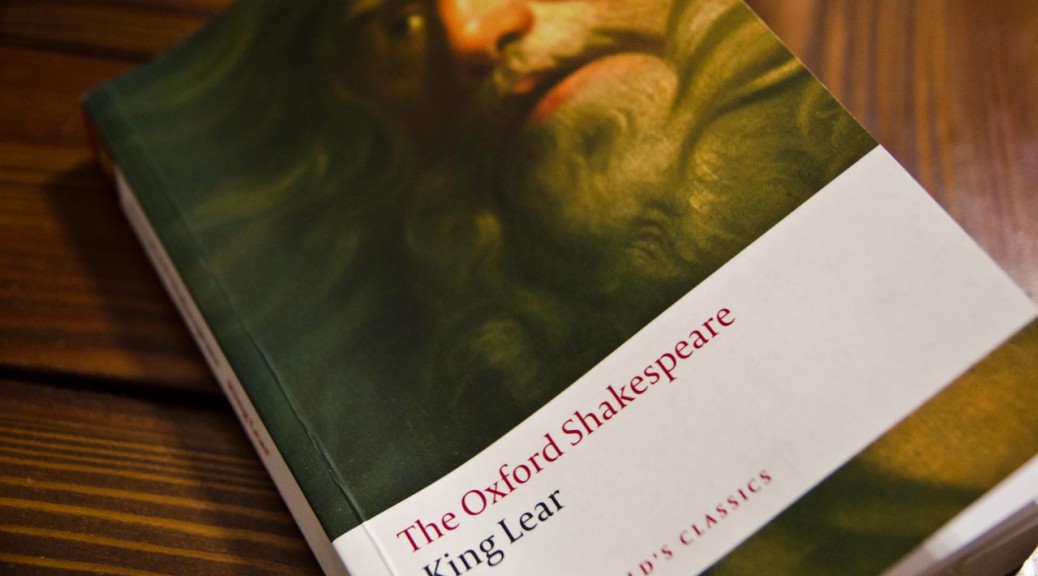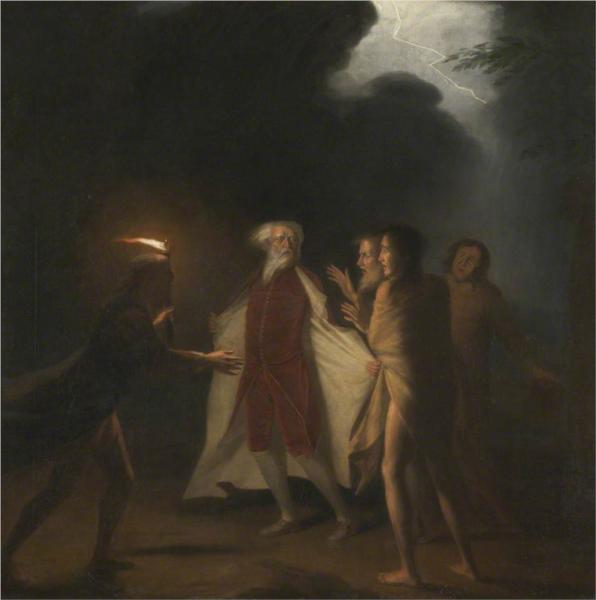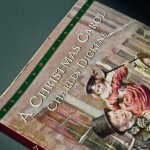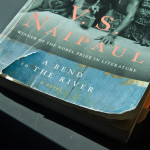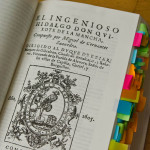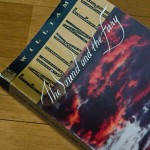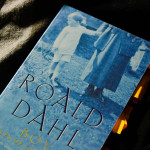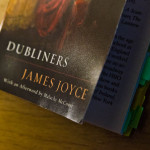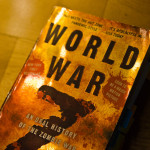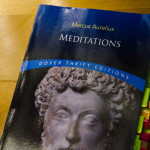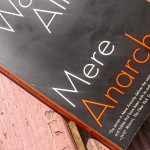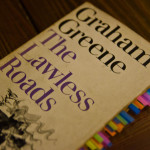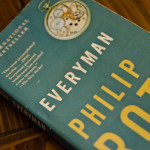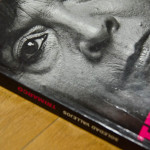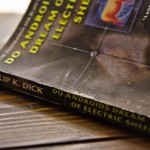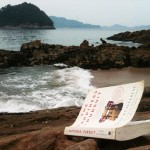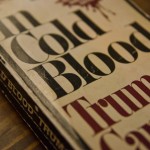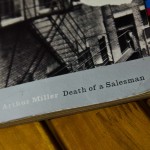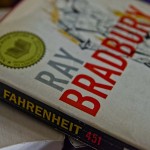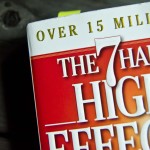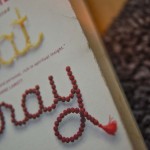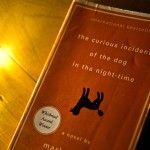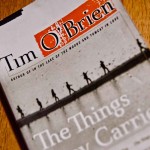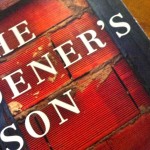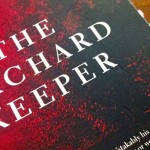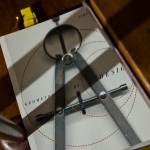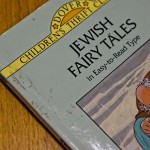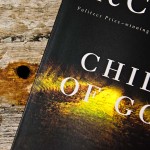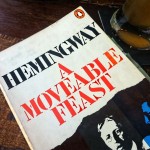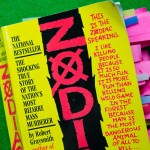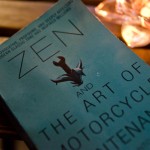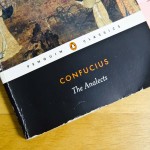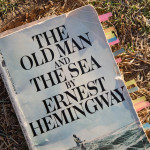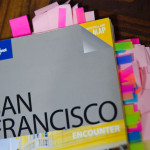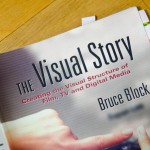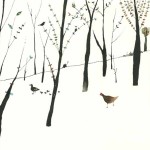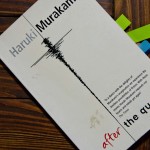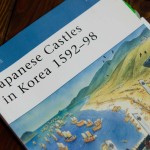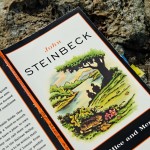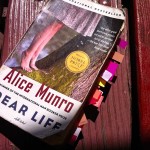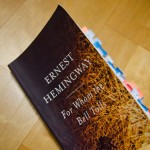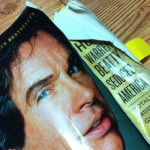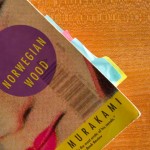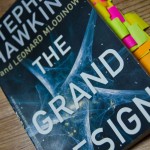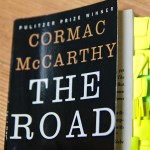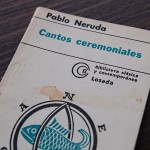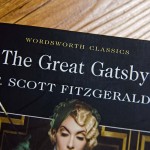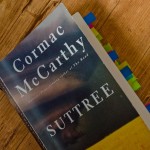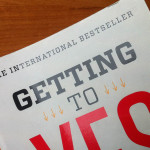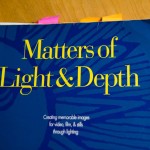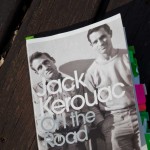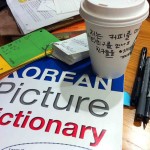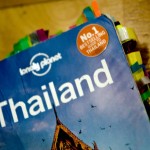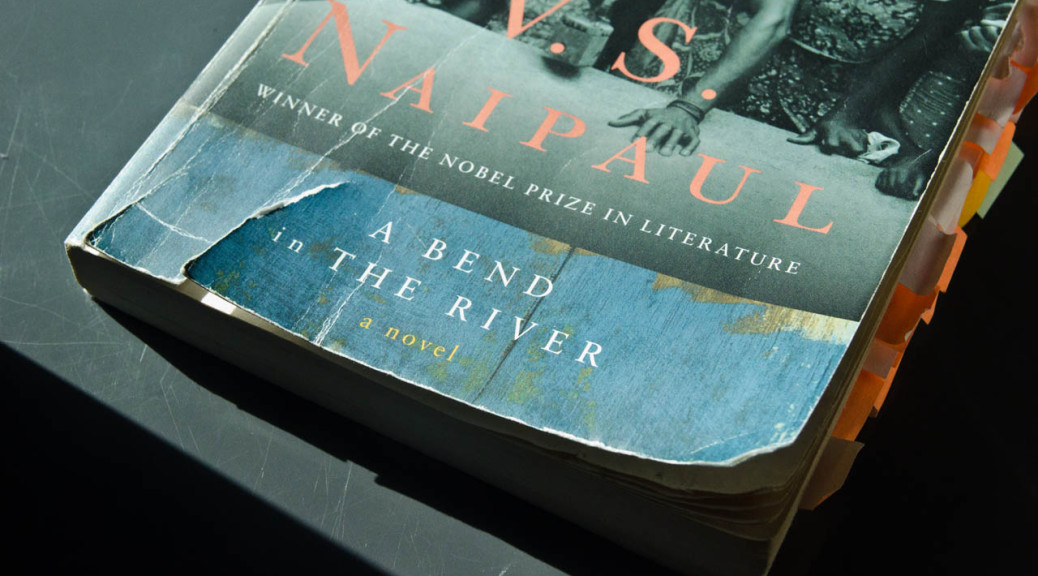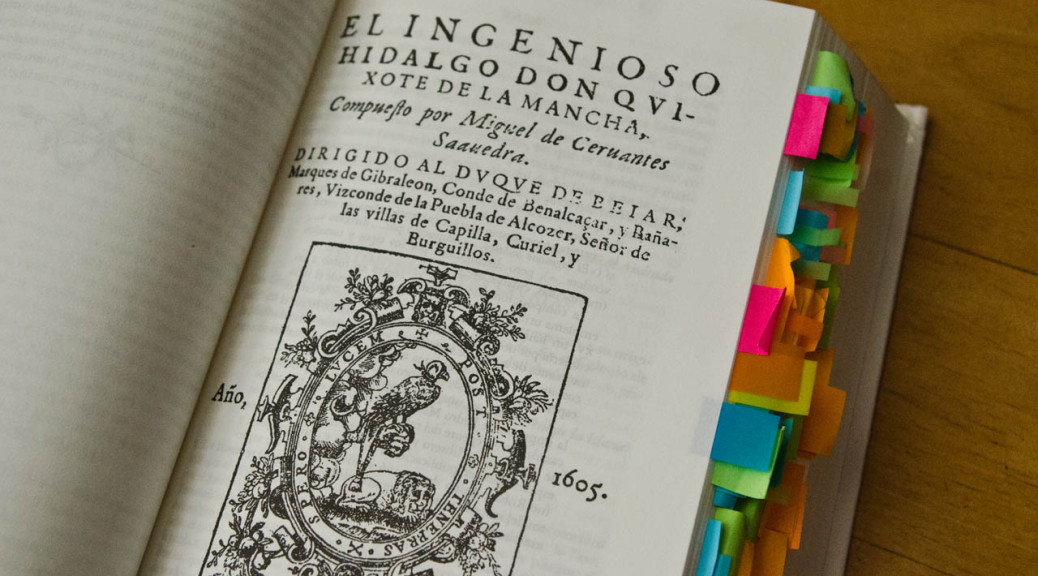Naipaul, V. S. A Bend in the River. New York: Vintage International, 1989. Print. (First ed. 1979)
“The world is what it is; men who are nothing, who allow themselves to become nothing, have no place in it.” p. 3
“In the darkness of the river and forest you could be sure only of what you could see–made a noise–dipped a paddle in the water–you heard yourself as though you were another person. The river and the forest were like presences, and much more powerful than you.” p. 8
“Zabeth was a magician, and was known in our region as a magician. Her smell was he smell of her protecting ointments. Other women used perfumes and scents to attract; Zabeth’s ointments repelled and warned.” p. 10
“Without Europeans, I feel, all our past would have been washed away, like the scuff marks of fishermen on the beach outside our town.” p. 12
***”All that had happened in the past was washed away; there was always only the present. It was as though, as a result of some disturbance in the heavens, the early morning light was always receding into the darkness, and men lived in a perpetual dawn.” p. 12
“When things went wrong they had the consolations of religion. This wasn’t just a readiness to accept Fate; this was a quiet and profound conviction about the vanity of all human endeavour.” p. 16
“a relisher of life, a seeker after experience” p. 25
“I wondered about the nature of my aspirations, the very supports of my existence; and I began to feel that any life I might have anywhere–however rich and successful and better furnished–would only be a version of the life I lived now.” p. 42
**”Always, sailing up from the south, from beyond the bend in the river, were clumps of water hyacinths, dark floating islands on the dark river, bobbing over the rapids. It was as if rain and river were tearing away bush from the heart of the continent and floating it down to the ocean, incalculable miles away… Night and day the water hyacinth floated up from the south, seeding itself as if travelled.” p. 46
“They said they were poor and wanted money to continue their studies. Some of these beggars were bold, coming straight to me and reciting their requests; the shy ones hung around until there was no one else in the shop. Only a few had bothered to prepare stories, and these stories were like Ferdinand’s: a father dead or far away, a mother in a village, an unprotected boy full of ambition… The guilelessness, the innocence that wasn’t innocence–I thought it could be traced back to Ferdinand, his interpretation of our relationship and his idea of what I could be used for.” p. 55
“The people here were malins the way a dog chasing a lizard was malins because they lived with the knowledge of men as prey.” p. 56
“Every carving, every mask, served a specific religious purpose, and could only be made once. Copies were copies; there was no magical feeling or power in them; and in such copies Father Huismans was not interested. He looked in masks and carvings for a religious quality; without that quality the things were dead and without beauty.” p. 61
“The first Roman hero, travelling to Italy to found his city, lands on the coast of Africa. The local queen falls in love with him, and it seems that the journey to Italy might be called off. But then the watching gods take a hand; and one of them says that the great Roman god might not approved of a settlement in Africa, of a mingling of peoples there, of treaties of union between Africans and Romans.” p. 62

Dido and Aeneas, from a Roman fresco, Pompeian Third Style (10 BC – 45 AD), Pompeii, Italy. Via Wikimedia.

Map of Aeneas’ journeys by Rcsprinter123. Via Wikimedia.
“This is Zabeth’s world. This is the world to which she returns when she leaves my shop. But Zabeth’s world was living, and this was dead. That was the effect of those masks lying flat on the shelves, looking up not forest or sky but at the underside of other shelves. They were masks that had been laid low, in more than one way, and had lost their power.” p. 65
“wandering back to the food stalls: little oily heaps of fried flying ants (expensive, and sold by the spoonful) laid out on scraps of newspaper; hairy orange-coloured caterpillars with protuberant eyes wriggling in enamel basins; fat white grubs kept moist and soft in little bags of damp earth, five or six grubs to a bag–these grubs, absorbent in body and of neutral taste, being an all-purpose fatty food, sweet with sweet things, savory with savory things. These were all forest foods, but the villages had been cleaned out of them (grubs came from the heart of a pal tree); and no one wanted to go foraging too far in the forest.” p. 66
“While he lived, Father Huismans, collecting the things of Africa, had been thought a friend of Africa. But now that changed. It was felt that the collection was an affront to African religion… The masks themselves, crumbling n the slatted shelves, seemed to lose the religious power Father Huismans had taught me to see in them; without him, they simply became extravagant objects.” p. 84
“It wasn’t the ice cream that attracted Mahesh. It was the idea of the simple machine, or rather the idea of being the only man in the town to own such a machine… They are dazzled by the machines they import. That is part of their intelligence; but they soon start behaving as though they don’t just own the machines, but the patents as well; they would like to be the only men in the world with such magical instruments.” p. 90
“They didn’t see, these young men, that there was anything to build in their country. As far as they were concerned, it was all there already. They had only to take. They believed that, by being what they were, they had earned the right to take; and the higher the officer, the greater the crookedness–if that word had any meaning.” p. 91
“It seemed as easy as that, if you came late to the world and found ready-made those things that other countries and peoples had taken so long to arrive at–writing, printing, universities, books, knowledge. The rest of us had to take thngs in stages. I thought of my own family, Nazruddin, myself–we were so clogged by what the centuries had deposited in our minds and hearts. Ferdinand, starting from nothing, had with one step made himself free, and was ready to race ahead of us.” p. 102-103
“We lived on the same patch of earth; we looked at the same views. Yet to him the world was new and getting newer. For me that same world was drab, without possibilities.” p. 103
“”Would the honourable visitor state whether he feels that Africans have been depersonalized by Christianity?”
¶Indar did what he had done before. He restated the question. He said, “I suppose you are really asking whether Africa can be served by a religion which is not African. Is Islam an African religion? Do you feel that Africans have been depersonalized by that?”” p. 121
“You are men of the modern world. Do you need African religion? Or are you being sentimental about it? Are you nervous of losing it? Or do you feel you have to hold on to it just because it’s yours?” p. 122
Raymond “I find that the most difficult thing in prose narrative is linking one thing with the other. The link might just be a sentence, or even a word. It sums up what has gone before and prepares one for what is to come.” p. 136

Theodor Mommsen. Ludwig Knaus. 1881. Via Wikimedia.
“There may be some parts of the world–dead countries, or secure and by-passed ones–where men can cherish the past and think of passing on furniture and china to their heirs. Men can do that perhaps in Sweden or Canada. Some peasant department of France full of half-wits in châteaux; some crumbling Indian palace-city, or some dead colonial town in a hopeless South American country. Everywhere else men are in movement, the world is in movement, and the past can only cause pain.” p. 141
“But I hadn’t understood to what extent our civilization had also been our prison. I hadn’t understood either to what extent we had been made by the place where we had grown up, made by Africa and the simple life of the coast, and how incapable we had become of understanding the outside world.” p. 142
“But this lady also thought that my education and background made me extraordinary,and I couldn’t fight the idea of my extraordinariness.
¶”An extraordinary man, a man of two worlds, needed an extraordinary job. And she suggested I become a diplomat.” p. 145
“there was the Edgware Road, where the shops and restaurants seemed continually to be changing hands; there were the shops and crowds of Oxford Street and Regent Street. The openness of Trafalgar Square gave me a lift, but it reminded me that I was almost at the end of my journey.” p. 146
“Now I saw differently. And I understood that London wasn’t simply a place that was there, as people say of mountains, but that it had been made by men, that men had given attention to details as minute as those camels.
¶I began to understand at the same time that my anguish about being a man adrift was false, that for me that dream of home and security was nothing more than a dream of isolation, anachronistic and stupid and very feeble. I belonged to myself alone.” p. 151
“We solace ourselves with that idea of the great men of our tribe, the Gandhi and the Nehru, and we castrate ourselves. ‘Here, take my manhood and invest it for me. Take my manhood and be a greater man yourself, for my sake!’ No! I want to be a man myself.” p. 152
“The job is thee, waiting. But it doesn’t exist for you or anyone else until you discover it, and you discover it because it’s for you and you alone.” p. 153
“These three people were in many ways alike–renegades, concerned with their personal beauty, finding in that beauty the easiest form of dignity.” p. 157
“Rustic manners, forest manners, in a setting not of the forest. But that was how, in our ancestral lands, we all began–the prayer may on the sand, then the marble floor of a mosque; the rituals and taboos of nomads, which transferred to the palace of a sultan or a maharaja, become the traditions of an aristocracy.” p. 161
“In spite of the corrupt physical ways our passion had begun to take, the photographs of Yvette that I preferred were the chastest. I was especially interested in those of her as a girl in Belgium, to whom the future was still a mystery.” p. 184
“The businessman bought at ten and was happy to get out at twelve; the mathematician saw his ten rise to eighteen, but didn’t sell because he wanted to double his ten to twenty.” p. 198
“Uganda was beautiful, fertile, easy, without poverty, and with high African traditions. It ought to have had a future, but the problem with Uganda was that it wasn’t big enough. The country was now too small for its tribal hatreds.” p. 200-201
Shoba and Mahesh “Acid on the face of the woman, the killing of the man–they were the standard family threats on these occasions,” p. 203
“”You can hire them, but you can’t buy them.” It was one of his sayings; it meant that stable relationships were not possible here, that there could only be day-to-day contracts between men, that in a crisis peace was something you had to buy afresh every day.” p. 210
“We came down slowly, leaving the upper light. Below the heavy cloud Africa showed as a dark-green, wet-looking land. You could see that it was barely dawn down there; in the forests and creeks it would still be quite dark.” p. 247
“The water hyacinths, “the new thing in the river,” beginning so far away, in the centre of the continent, bucked past in clumps and tangles and single vines, here almost at the end of their journey.” p. 249
“If there was a plan, these events had meaning. If there was law, these events had meaning. But there was no plan; there was no law; this was only make-believe, play, a waste of men’s time in the world. And how often here, even in the days of bush, it must have happened before, this game of warders and prisoners in which men could be destroyed for nothing. I remembered what Raymond used to say–about events being forgotten, lost, swallowed up.” p. 267
“The searchlight lit up the barge passengers, who, behind bars and wire guards, as yet scarcely seemed to understand that they were adrift. Then there were gunshots. The searchlight was turned off; the barge was no longer to be seen. The steamer started up again and moved without lights down the river, away from the area of battle. The air would have been full of moths and flying insects. The searchlight, while it was on, had shown thousands, white in the white light.
¶July 1977-August 1978” p. 278
Save
Save
Save
Save
Save
Save
Save


